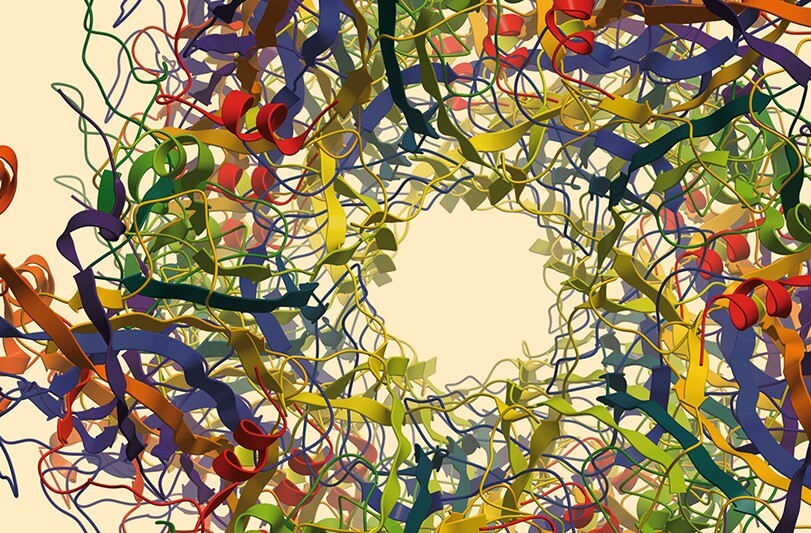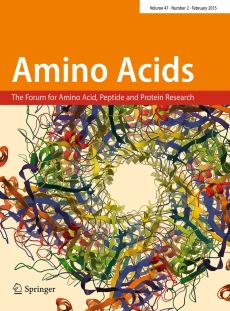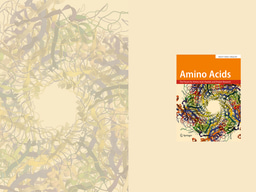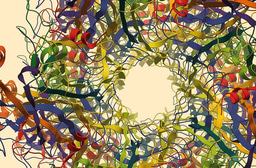OPEN FOR SUBMISSIONS: Interruption of Amino Acids Supply as Anti-Tumor Strategy
Published in Cancer, Chemistry, and Cell & Molecular Biology

SUBMIT YOUR PAPER HERE
- Fully OA Journal: Amino Acids
- Guest Editors: Prof. Dr. Ellen Closs, Prof. Dr. Stefan Broer, Dr. Yilei Zhang
- Submission Deadline: December 31, 2025
- Special Issue title: Interruption of Amino Acids Supply as Anti-Tumor Strategy
- Full waivers and a discount are available upon acceptance. Early-career researchers are especially encouraged to submit!
The interruption of amino acids supply has emerged as a promising anti-tumor strategy, with research focusing on the metabolic vulnerabilities of cancer cells. Depletion of essential amino acids necessary for tumor growth has shown potential in inhibiting cancer cell proliferation and inducing cell death. This approach has garnered significant interest in the field of cancer metabolism and targeted therapies, with studies exploring the mechanisms underlying amino acid depletion’s anti-tumor effects and its potential as a therapeutic strategy across different cancer types.
Advancing our collective understanding in this area is crucial for identifying novel therapeutic targets and developing effective anti-cancer interventions. Recent advances have elucidated the intricate metabolic pathways involved in amino acid utilization by cancer cells, shedding light on the potential for targeted disruption of amino acid metabolism and supply as a strategy to impede tumor growth.
Furthermore, studies have highlighted the interplay between amino acid depletion and the tumor microenvironment, offering insights into the broader implications of this approach for cancer therapy.
Original Research articles and reviews in this field are invited!
This Collection supports and amplifies research related to SDG 3 (Good Health and Well-being).
Do you want to know more about the fully OA journal Amino Acids? Click here!
Follow the Topic
-
Amino Acids

Amino Acids is an Open Access peer-reviewed journal focusing on the study of amino acids and related compounds across multiple disciplines.
Ask the Editor – Inflammation, Metastasis, Cancer Microenvironment and Tumour Immunology
Got a question for the editor about inflammation, metastasis, or tumour immunology? Ask it here!
Continue reading announcementRelated Collections
With Collections, you can get published faster and increase your visibility.
Advancements and Applications in Structural Bioinformatics
Structural bioinformatics plays a crucial role in modern computational biology, driving breakthroughs in drug discovery, protein engineering, and understanding biomolecular interactions, as well as disease-causing modifications of these biomolecules. With the rapid development of Artificial Intelligence (AI)-based methods, enhanced molecular simulations, and integrative modeling approaches, this field is experiencing unprecedented progress.
This special issue aims to highlight cutting-edge research and novel applications in structural bioinformatics.
Structural bioinformatics is a broad field focused on applying computational approaches to proteins of biological and biomedical interest. It also addresses machine and deep learning methods dedicated to structural prediction, which have become essential for advancing protein structure and conformational modeling. New techniques for studying biomolecular interactions offer promising ways to better characterize protein-protein and protein-ligand interactions and understand their functional implications. Another important focus is computational drug design, which includes structure-based and AI-driven approaches for drug discovery and repurposing, as well as ligand docking, and molecular dynamics simulations. The field also includes integrative structural biology, combining experimental data and computational methods for multi-scale modeling of biomolecular systems. Finally, the development of structural databases, algorithms, and visualization tools remains central to supporting research in this field. This special issue aims to highlight the diverse yet interconnected and innovative aspects of structural bioinformatics.
We invite researchers to submit original research articles, reviews, and perspective papers that advance the field of structural bioinformatics.
Publishing Model: Open Access
Deadline: Sep 30, 2026
Exploring the Multifaceted Roles of Polyamines in Animals, Plants, and Microorganisms
Polyamines are small polycationic molecules derived from arginine that play essential roles in various biological processes across a wide range of organisms, including animals, plants, and microorganisms. The polyamine biosynthetic pathway is initiated by ornithine decarboxylase (ODC), an enzyme that catalyzes the rate-limiting decarboxylation of ornithine to produce putrescine. Putrescine is subsequently converted to spermidine and spermine. These polyamines are involved in cellular growth including proliferation, cell differentiation and stress responses, acting as key regulators in metabolism and signaling pathways. Given their ubiquitous presence and diverse functions, understanding the mechanisms by which polyamines operate is critical for advancing our knowledge of cellular homeostasis and organismal physiology.
The significance of studying polyamines extends beyond basic biology, as recent advances have revealed their potential therapeutic applications in medicine and agriculture. For instance, research has shown that polyamines can mitigate oxidative stress in plants, enhance tolerance to environmental challenges, and even play a role in neuroprotection in animal models. By elucidating the intricate roles of polyamines and their metabolites, we can develop novel strategies to enhance crop resilience and devise innovative therapeutic approaches for human health.
Continued research into polyamines holds promise for uncovering novel pathways and interactions that could lead to groundbreaking advancements in both basic science and applied fields. As we deepen our understanding of how polyamines regulate growth and stress responses, transcription and translation of the signal, there is potential for the development of targeted interventions that improve plant resilience to climate change, optimize metabolic processes in microorganisms, and yield new therapeutic agents for complex pathologies in humans.
We invite Authors to contribute to the Special Issue by submitting original research articles, mini reviews, and full reviews that provide new insights into the diverse roles of polyamines.
Please note:
(1) Article Processing Charges (APCs) may be covered by agreements that Springer Nature has with many institutions worldwide. We encourage authors to check with their institution and consult the journal’s main webpage to determine if they are eligible for coverage. If your institution is not included, please contact the journal directly for further assistance.
(2) Authors may serve as corresponding author or first/last author on no more than two articles. However, they may contribute as co-authors to an unlimited number of other publications included in the Special Issue.
(3) Articles are collected as soon as they are accepted for publication. Authors do not need to wait for their article to appear in print or online until the final contribution to the collection has been submitted.
Publishing Model: Open Access
Deadline: Mar 30, 2026



Please sign in or register for FREE
If you are a registered user on Research Communities by Springer Nature, please sign in